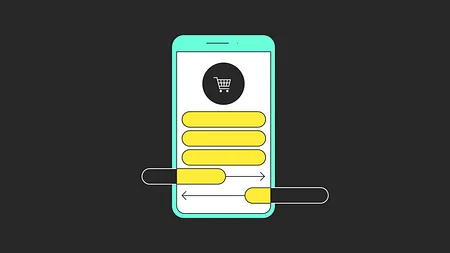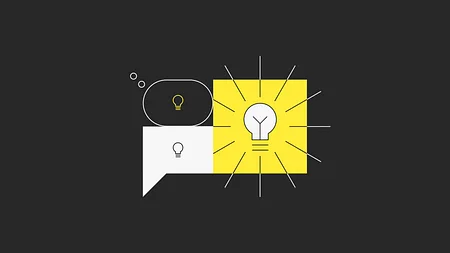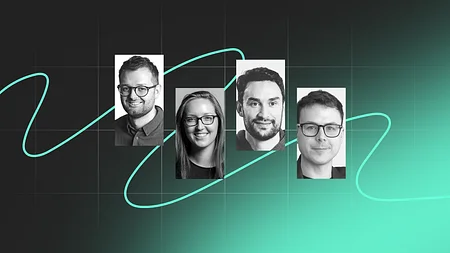FinTech Legend Leda Glyptis: If You Choose Who You Are, What You Do Will Follow
We sit down with Leda Glyptis, one of our favourite banking and FinTech leaders, to talk APIs and open banking, the aftermath of Brexit, PSD2, and why there aren’t more women in FinTech. Shortly after we recorded this interview, Leda became Chief Innovation Officer at Qatar National Bank Group.
You’re not a London local…. You grew up in Athens?
“I was born and raised in Greece at a time when it was very different to what it is now. It was a transitional period of great madness and great opportunity. Absolutely everything felt possible…”
Why, then, the change to London?
“My mum made me. I was bookish and into my studies and very curious. I decided I would leave the country. My mother, in her usual dramatic voice, said, ‘you’re gonna go. But if you’re gonna go, you’re going to Cambridge, because I read somewhere that it’s the best university in Europe. So if you’re gonna go, do it right.’”
You joined BNY Mellon, looking at their innovation capabilities.
“It was brilliant for a couple of reasons. One is that, at BNY Mellon, innovation is championed. The second reason why it was brilliant [was that] it coincided with the time when Mellon was rebuilding its platforms. So, actually, you could talk with immense credibility about digital transformation…and not just be a voice in the wilderness. The third reason that made it very good was very personal. I had earned my stripes – I had spent enough time in operations, so I had freedom to do things and try things that, realistically, you don’t get unless the company knows you.
“But the flip side is that, once you’ve figured out the language of working out ideas and their feasibility, business model innovation is the hardest thing. And BNY Mellon is very conscious of the fact that it represents an area of banking that has to remain as secure as possible…But at the same time, there are very many permutations of the future that don’t look very profitable…I felt, at the time, that I was at a juncture, where what I was doing had come to a very successful end – not a finish, but the end of a cycle. And how do you leave a place that loves you and you love them! With great difficulty. But I felt that if I didn’t leave at that juncture, I would spend the rest of my career there.”
Everything you were doing was to change how you were engaging with the customer. Is that right?
“Absolutely. I would say that innovation activities as we see them in the market at the moment would fall roughly in three buckets. One is, I call it ‘jazz hands’…it is on the surface, it is made to be seen…it doesn’t necessarily fail to permeate, but it is not intended to have a deep and lasting impact. It has never been my strength.
“The second bucket is the day to day: thinking differently, behaving differently, becoming the difference you want to see. And that’s exceptionally unglamorous work – it’s also what I came to be best at! But, fundamentally, what differentiates an innovative company from a non-innovative company is the ability to articulate the ‘what’ and the ‘why’…We all know that, for reasons that are both endemic and unplanned, banks have gotten bad at it. It’s unglamorous; it’s plumbing. But you need that in order to become an organisation that is capable of it.
“And then, the final piece is: become a business for the future….”
Something I’ve seen you talk about a number of times recently is open banking and APIs. What is it that you think is so exciting about this space?
“If you’re not a techie: we are able to do things that feel, to the non-technical people, like a Harry Potter moment…For the technologists…the new type of geek…it means that what is possible is now commercially viable – whereas, for a very long time, quite a lot of technological capability was not permitted for use in banks…Now, we can redesign what we do because new things are possible.
“The fact that so much of it is happening in our lifetime is absolutely inspirational – but it’s also terrifying! Because we have to do a lot of learning, a lot of imagining, and we also have to figure out how we’re going to do all that and make money. And the realisation that we will make money differently, in different places and in different ways and in different numbers, is not as simple as all that.”
Technology has been a limiting factor for so long…and now we’ve got things like PSD2 and the movement around APIs really being the fuel for innovation…
“I absolutely agree with that. I think we’ve seen a couple of massive changes. One is…now we have technology that is actually easy to build and very easy to use. The technology moved faster than a lot of us did. So we have to wrap our heads around what is now possible. But what is becoming very powerful and evident to me is this shift to regulating what has been done rather than who is doing it….”
Do you think there’s a happy ending in this for banks?
“Banks have been pretty innovative over the years…The challenge we have presented banks with in this juncture is that quite a lot of the things being put on the table attack profitability…It’s not a good deal! What is missing from a lot of the things on the table is the value proposition, and this is where the change in regulation has completely changed the game.
“The people sitting behind the desks that are impacted by those decisions are human beings, and they are faced with their entire knowledge base becoming redundant…and at the same time, we’re expecting them to be creative and imaginative in this new future. If we’re going to be frank about it, banking has always been about money: managing money and making money. It is the making of money that is the unspoken question in a lot of these things.”
“There need to be some conversations on both sides. On the bankers’ side: nobody said that the way they make a living was guaranteed forever. So change, and new areas of profitability, and certain areas of profitability not existing anymore have to be part of the equation. But on the other side, it’s a business, and a business that isn’t profitable goes out of business. And it’s a business, but it’s not a public-service business. So it should go without saying that both FinTech and banking can and should remain profitable, but the way that profitability works doesn’t necessarily need to remain unchanging.”
We had the ‘Innovate Finance Women in Fintech Powerlist’ announced a few weeks ago…Why [aren’t] there more women in banking and FinTech?
“There shouldn’t be a list. There’s no list of men in FinTech. And I’m not even sure what these lists are meant to prove. I think we’re dealing with two pretty heavy legacies here. One is…if you tell your son you’ll teach them how to fix their bike, but fix your daughter’s bike for her, you create expectations among both your boys and girls, which is why we see…fewer women going into science, technology, mathematics. It is not something that women are, still to this day, encouraged to play with. So you start off on the back foot. I do think it starts at an early age, creating that ‘ungendering’ of the environment.
“Things get a little harder when you get into the workplace. What I’ve found is that being a woman doesn’t necessarily close doors, but it makes being in the room harder. It is on you as a woman to do something about things that (A) shouldn’t be happening, and (B) shouldn’t be your problem. I would say the thing that holds women back is the daily decision of ‘should I let this one slide? It’s that daily war of attrition…
“There’s also an element of unconscious bias. One of the fun things of being a doctor is that everyone assumes I am a man…. I have had so many instances where I arrived for an event…and people say ‘well, have a cup of tea, love, we’re waiting for Dr Glyptis, he’s not here yet.’”
This has to be not about talking, it has to be about doing. And until we see significant ‘doing’ in this space…all organisations are in the same boat.
“I think you’re right. We need to acknowledge the progress that has been made…One: take the differentiators away. Parental leave is a good example. If parental leave is a requirement, because it makes you a better human being, then, all of a sudden, you ‘degenderise’ quite a lot. If picking up your children from school doesn’t become the responsibility of one parent, I think that lifts quite a lot out.
“The other element is: diversity can’t just be visual. What matters is that the organisation creates a space for different voices, which will liberate everyone and actually bring the goods in. But it will also allow for that conversation where you will remember not to talk in acronyms, because there are people in here who are very useful but didn’t grow up in the same place as you.”
We’ve gone through quite a tumultuous time recently with everything with Brexit, and with Trump’s election.
“I know that a lot of people feel that their life hasn’t been filled with plenty, but actually, compared historically to other generations and periods before us, we are going through a period of great stability, particularly in Europe…and we’ve gotten used to it to a certain extent. And big decisions are being put on the table in a ‘tweetable’ format – and it’s dangerous…We’ve seen people vote one way or another on a gripe or on inadequate information…Things that were exceptionally complicated were oversimplified…Responsibility lies across the board, because the leaders of all camps did not allow for complexity. If I try to explain to you how the supercollider works, but not use any physics, chances are you wont be able to fix it!”
How accountable do you think the people who are voting really are, given how manipulated they’ve been?
“If you don’t want to work for something, do you still deserve it? And I am not advocating for restrictions on citizenship; I am advocating for responsible citizenship. You should not consider yourself morally absolved from reading a piece of legislation before going to vote for it…. We’ve got a systemic crisis on our hands if we are going to put really complex things to the vote, but not expect that all citizens will be willing and able to understand what it is they’re voting on. What’s next? Having your next-door neighbour operating on you because you like them?”
Coming full circle…how does this make you feel about the UK? Does it make you feel differently about the way that the UK embraces difference of people?
“It does. I’ve been here nineteen and a half years, and I’m an immigrant. I came for an opportunity. I came fully-grown, which means cheaper to run. I have been lucky enough to be healthy. So I have been a taxpayer with no drain on the economy. I happen not to have had children. So, the services I have consumed have been minimal; the services I have contributed to have been high…. Immigrants tend to be net contributors to the economy.
“I hope…that the place that made me feel welcome will find itself again, because all this hate is good for nothing.”
What’s the golden rule you never break?
“If you choose who you are, what you do will follow.”


